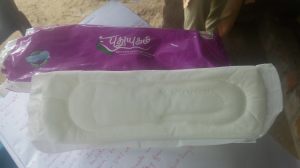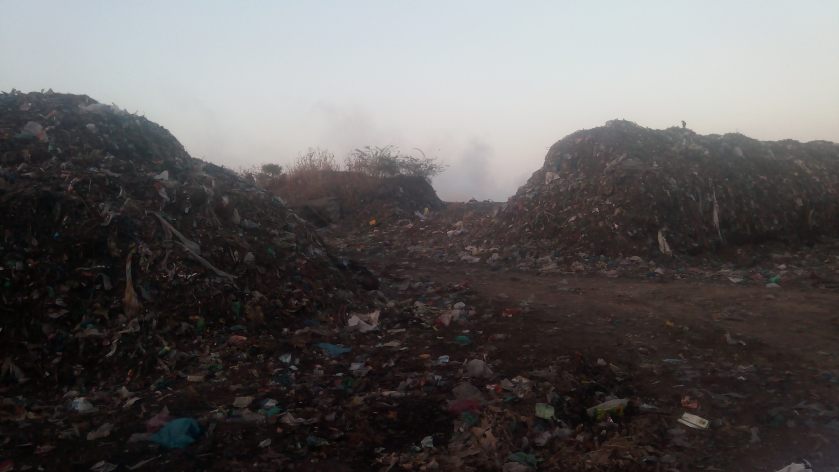Being currently placed in the small, beautiful coastal town of Vedaranyam, in Tamil Nadu, as part of my Rural Development Fellowship, Youth For India, with the NGO MSSRF, I am trying to spread awareness on Female Reproductive Health and Hygiene.
My background research had told me that women use unimaginable things such as sand, ash, leaves in the villages. I was not at all comfortable imagining such responses, and to make myself feel better I start off with – “Do you use cloth for your monthly periods?” and got an answer – “Don’t you know we have to use “panji, tamil for cotton” bought from shop?”
It was unbelievable, to hear that from a 36 year old Vijayalakshmi, a tobacco farmer from one of the villages. Soon I realized that this was the case with more than 50% of women below age 40.
I was curious and inquired further. They told me that they had attended some awareness sessions conducted by government, where they were told to use sanitary napkins, take bath & remain clean during periods, not go to temples, and not stay back at home during periods. It amused me, though some information was given, they chose to not hurt religious sentiments. I could imagine my difficult path ahead; I was interested in explaining how gods were not affected by us menstruating. So that’s how the mothers shifted to pads since a year now.

I could very well imagine the daughters using sanitary napkins, after a well meaning, but poorly thought of central government scheme of subsidised napkins in 2010, followed by Tamil Nadu government providing free pads to girls in government schools from 2011. That added with no provision of clean toilets, clean water, no facility for pad disposal, was enough to create more trouble than ever imagined. Yazhini and Dasrsini, sisters, tell me that their school has a common toilet for both girls and boys. It is extremely dirty and stinky, plus has no water or any provision for pad disposal. So if they get a chance to come home, they do so and change, else remain in the same pad for the entire day. They don’t even use the toilets during periods. They also added, “the pads given from school are of low quality”; so they buy some from shop (even though it is well beyond the family budget) and mix and use both. So, it clearly shows, giving just pads were not enough, good quality pads, separate clean toilets for boys and girls, and some good pad disposal method too need to make the change effective.
Most of them practised burning, burying, or throwing into forest/water bodies/in garbage piles for pad disposal. They burn it right outside their house, after dusk, so that no one sees it. This mostly becomes a low temperature burning, exposing them to very harmful furans. Even when they bury it, it is again near their house, well, bore pump, etc., and involves a very high risk for contamination. They also use the nearby water bodies for all domestic purposes (except drinking) and thereby getting in contact with the germs again. Also, couple of times, when dogs drag the blood stained pads from the forest to the village, leading to blame games and big fights. None of these methods work well for them. I had never seen a garbage pile in here, so I used to think that at least that is not severe.
There too, my picture of clean and green rural India was flawed.We have not left any place unharmed.

Consumerism and irresponsibility towards environment has reached its peak, apart from our shame culture. The only 2 supermarkets here stock pads and diapers, medical shops too stock them, just that we don’t find as many brands and types, as found in a urban market. The strong message by MNCs around the shame associated with menstruation and the comfort of throwing away a used pad has fed on our irresponsibility towards environment and our fellow beings who collect garbage, so much that we really don’t care.
Some women who still use cloth, as they find it more comfortable, were ashamed to admit so. A couple of them said that they never used anything, they just took rest to minimize the flow, and let their dress be soaked (mostly women above 35, who bleed for a maximum of 2 days per cycle). They all felt that not using pad would make me be judgemental about them. They did not initially believe that I felt that using cloth was good and that I too am switching to cloth.

I realised, I did not have to provide them with more subsidised napkins, or teach them methods of disposal. (Even I am at a complete loss when it comes to an effective disposal of the regular pads). I wanted to provide the awareness on the potential harms of a regular pad (furans, dioxins, petroleum by-products, non-biodegradable, etc.,) and to introduce to them a harmless alternative of cloth pads. Kathy Walkling of Ecofemme, that makes cloth napkins, had taught me a wonderful and sensitive concept; that is, everyone has their own comforts, talk to them about cloth pads, but never force anyone to use it.
I wish to spread across this message of “Bleeding Safe and Healthy” on the eve of World Health Day, Apr 7th.
P. S. : Although this year UN is focusing on , I choose to write about sanitary napkins, their types, use, shame and disposal; which I feel is a very severe issue that all of us directly or indirectly faces
Its a good and healthy info…but the process for the disposing the pads is really a tough one and need your guidance ..but im almost in my last yrs in mensuratn cycle but still if it s given it will help others as well as me tooo….hats of to your effort ..
LikeLike